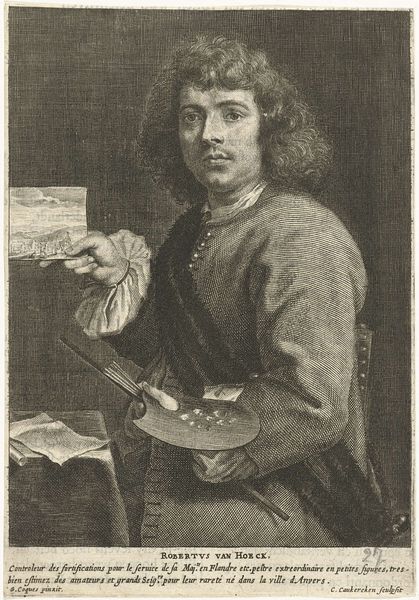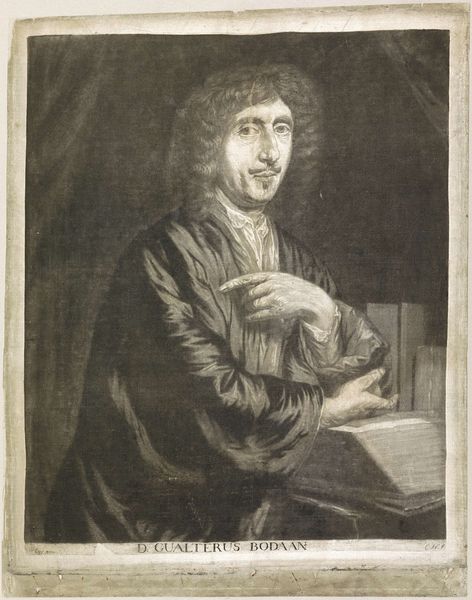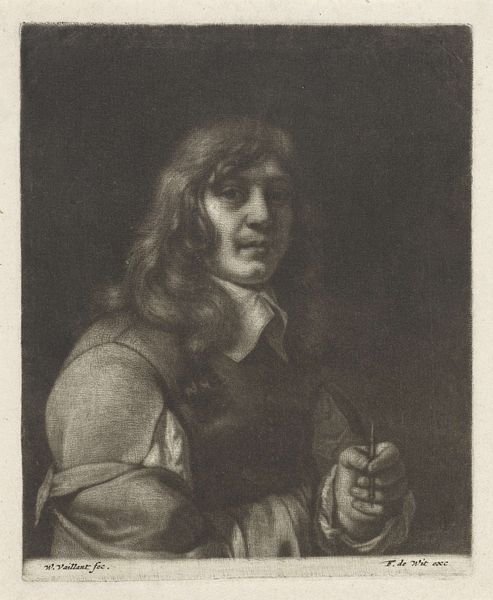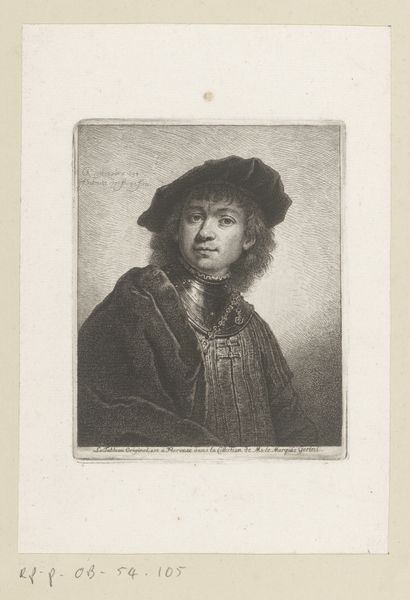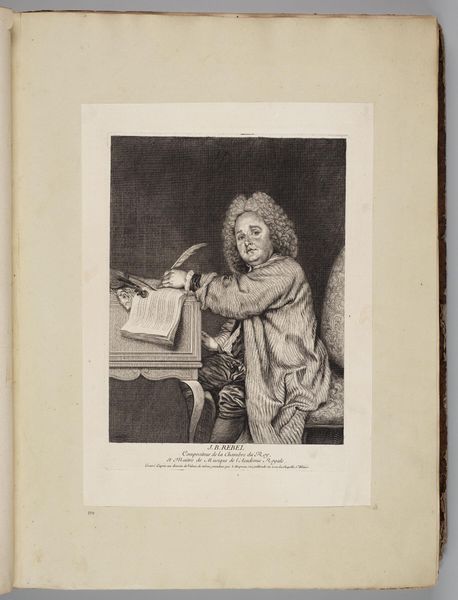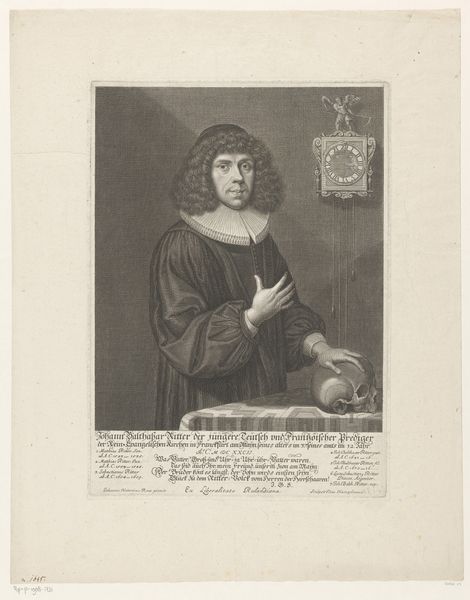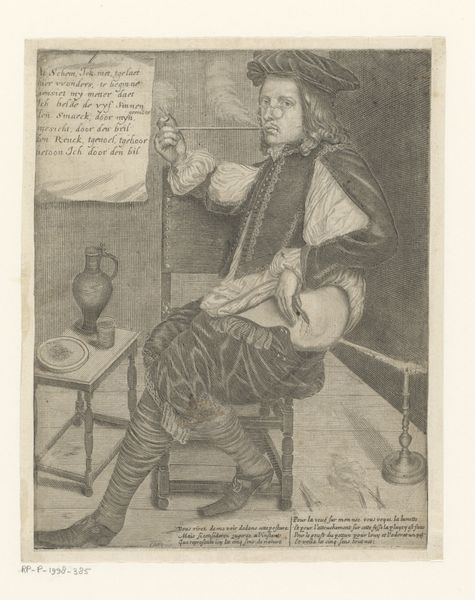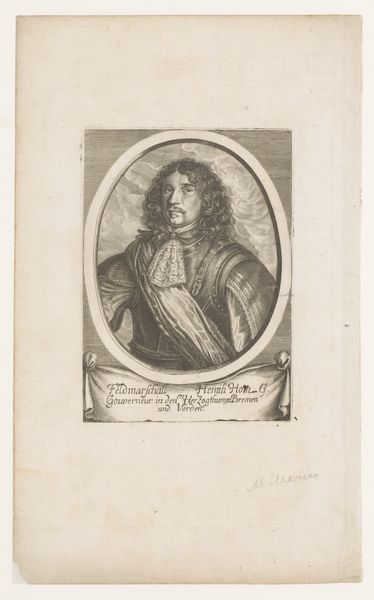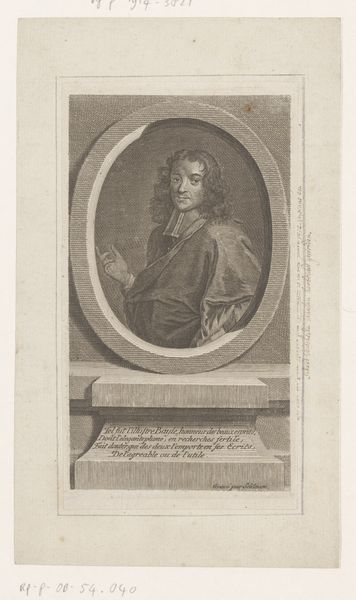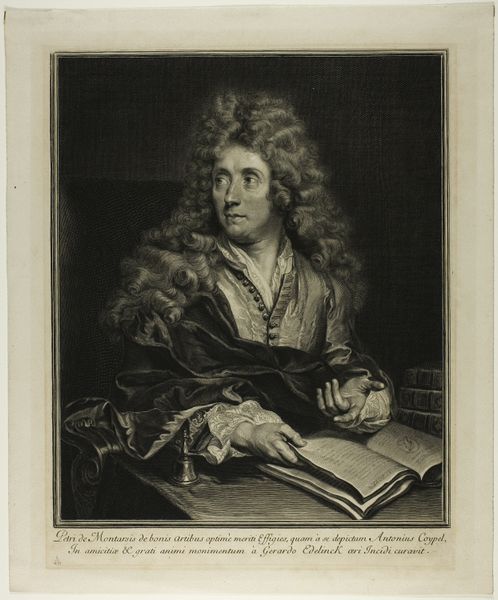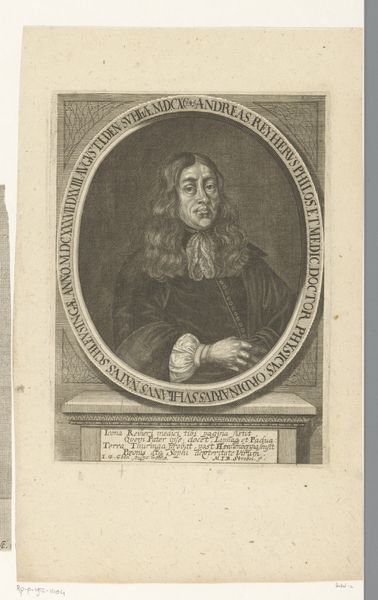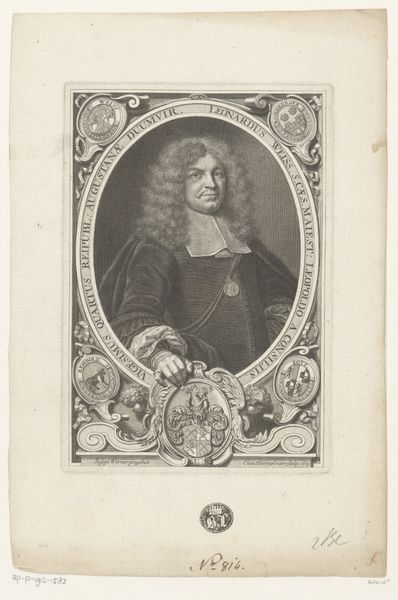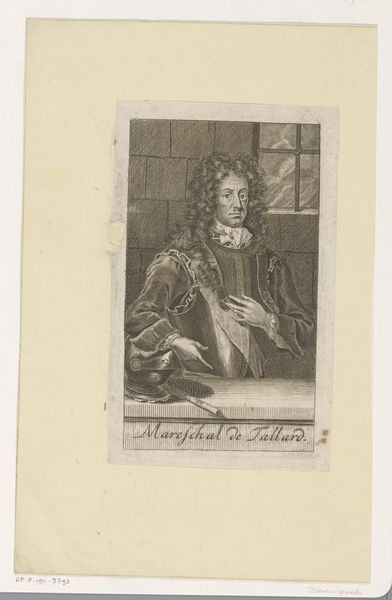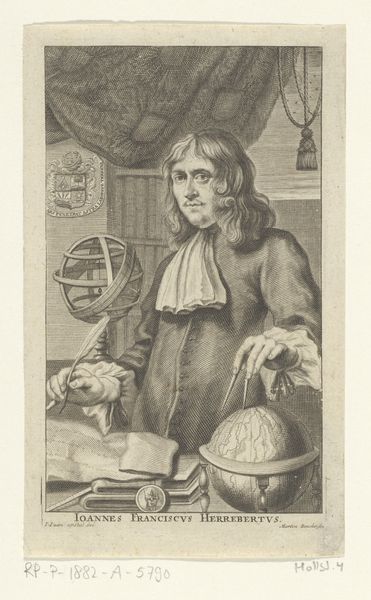
#
portrait
#
pencil drawn
#
aged paper
#
toned paper
#
light pencil work
#
photo restoration
#
pencil sketch
#
charcoal drawing
#
personal sketchbook
#
pencil drawing
#
pencil work
Dimensions: height 188 mm, width 131 mm
Copyright: Rijks Museum: Open Domain
Editor: We're looking at Cornelis van Caukercken’s "Portrait of Robert van den Hoecke," dating from 1649 to 1662. It’s currently housed in the Rijksmuseum. What strikes me is its directness; it seems like we’re catching Van den Hoecke mid-thought. What do you see in this piece that speaks to you? Curator: Well, I immediately see a negotiation of power and representation occurring. Consider the socio-political climate: the Dutch Golden Age. Van den Hoecke is presented as both an artist, with his palette, and a man of considerable influence - he's 'Controleur des fortifications', controller of fortifications, after all! This image reinforces his standing within both artistic and political circles, carefully constructing his public persona. Editor: That makes sense. So the portrait serves almost as a form of...propaganda, in a way? Asserting his dual role? Curator: Precisely! Portraits weren't just about likeness; they were strategic statements. Who commissioned this? How would it have been displayed? These questions lead us to understand the political maneuvering embedded within artistic patronage. What effect do you think the depiction of the smaller painting, the landscape he's holding, has on his portrayed identity? Editor: I guess it shows another facet of his skill and intellect - not just strategy, but artistic sensibility and the power to create and appreciate beauty, it serves a performative function. It's a sophisticated, multi-layered statement about the sitter. Curator: Exactly! So the portrait is more than just art; it is an emblem of cultural status and political ambition frozen in time. Understanding that reframes how we see such images in museums today. Editor: I'd never thought about a portrait in quite that way before. It's made me realize how much history can be packed into a single image. Thanks!
Comments
No comments
Be the first to comment and join the conversation on the ultimate creative platform.
